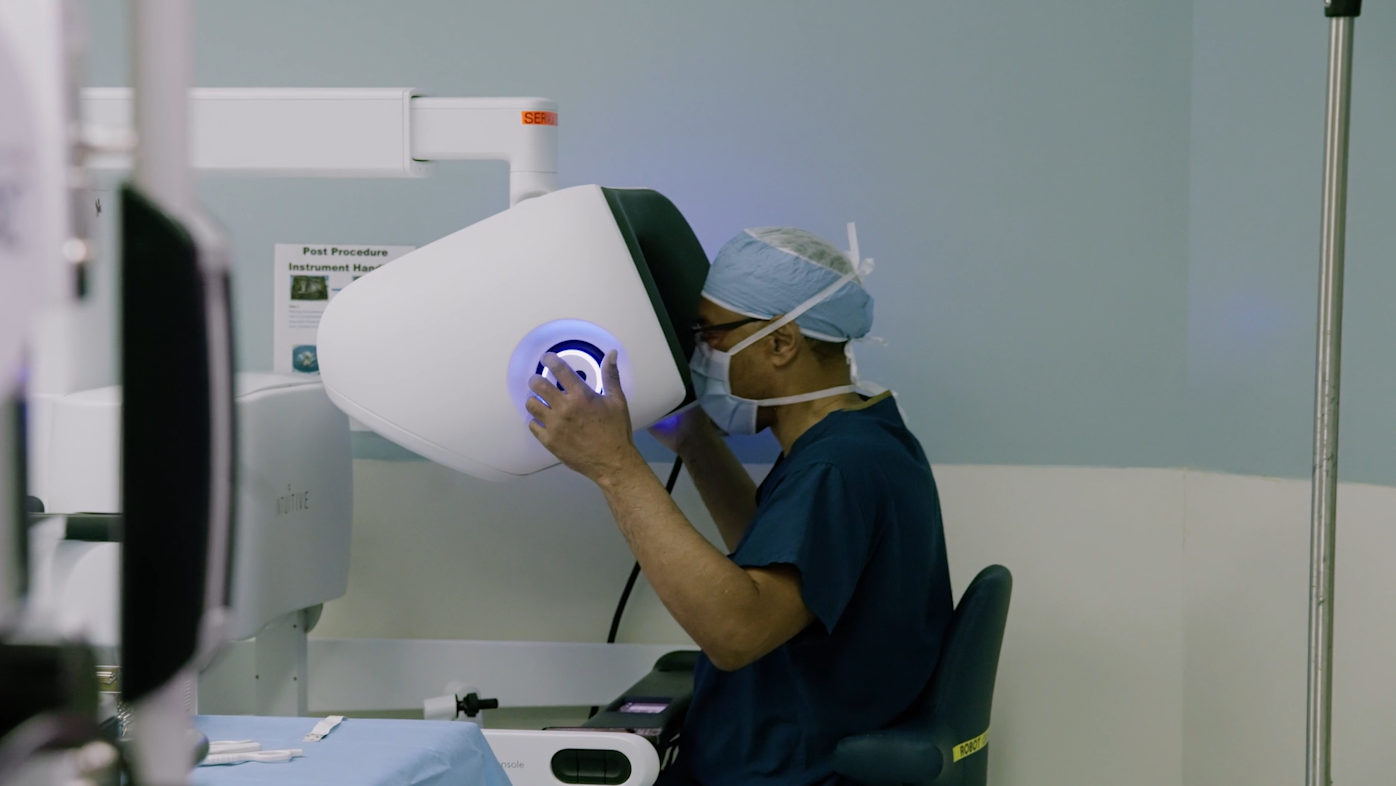
Robotic surgery reduces risk of pancreatic cancer
When David Jacks learned he had pancreatic cysts, he was treated with robotic surgery to reduce his risk of developing pancreatic cancer.
Most doctors know that nearly 13% of women born in the United States today will develop breast cancer at some time during their lives. But how many know what it feels like to be a patient with breast cancer as well as a provider?
Dr. Jennifer Fisher, a board-certified hematologist and oncologist affiliated with Sharp Community Medical Group and Sharp Memorial Hospital, provides comprehensive cancer care with a special interest in breast cancer, having lived with the disease herself.
“Globally, breast cancer is the leading cause of cancer-related deaths in women, with more than 2 million cases diagnosed worldwide each year,” Dr. Fisher says. “However, due to improvements in education, screening and treatments, breast cancer death rates have been steadily declining.”
According to Dr. Fisher, early warning signs of breast cancer can include:
Feeling a lump or mass in the breast that can be painful or painless
A change in breast shape or size
Dimpling or puckering of the breast
Inverted nipple
Nipple discharge
Redness of the skin over the breast
Scaly sores or rash on the nipple or areola
Enlarged lymph nodes in the armpit
Regular mammograms are the best way to check for early signs of breast cancer. Dr. Fisher explains that the new 3D mammography, also called digital breast tomosynthesis, is the latest advancement in screening for breast cancer. For many women, this new technology is a game changer.
“Instead of taking four images, the 3D mammogram acquires approximately 200,” she says. “This enables the radiologist to scan through the tissue to find lurking tumors that would otherwise be missed by 2D mammograms.”
There is no proven clinical research to support the use of supplements in treating breast cancer or preventing a recurrence. However, Dr. Fisher says certain lifestyle choices can help reduce the risk of breast cancer. She provides the following tips:
Maintain a healthy weight. Being overweight is a strong risk factor for breast cancer. Any weight gain beyond the age of 18, even a 10% weight gain, can increase the chances of breast cancer, as well as a cancer recurrence.
Exercise regularly. A study in the Journal of Clinical Oncology found that exercising for 7.5 or more hours a week can help lower breast cancer risk by 6 or more percent.
Eat a healthy diet. Plant-based foods are rich sources of fiber, antioxidants and phytochemicals, which have been shown to decrease the risk of cancer and other chronic diseases, such as diabetes and heart disease.
Limit alcohol use. Alcohol is another strong risk factor for many types of cancer, including breast cancer. As a survivor, Dr. Fisher recommends limiting alcohol intake to no more than 2 drinks per week. One drink is defined as a 5-ounce glass of wine, 12-ounce beer or 1.5 ounces of liquor.
During her time in practice, Dr. Fisher has seen dramatic improvements in surgical, radiation and medical treatments, including new hormonal therapies, chemotherapy, targeted drugs and immunotherapy. All of this can contribute to better outcomes for patients.
Dr. Fisher received surgical treatment, as well as chemotherapy and anti-estrogen treatment, to treat her breast cancer. She maintains and advocates a healthy diet of plant-based and low-fat foods — but admits to an occasional splurge (emphasis on occasional). She tries to fit in some form of exercise every day, whether it’s walking, Peloton or, one of her favorites, tennis.
“I feel that everyone should be aware of the signs and symptoms of breast cancer, when and how to be screened, and should talk with their doctor about their family history or other risk factors that would make them more prone to breast cancer so they can be proactive.”
Learn more about breast cancer screening at Sharp HealthCare.
Our weekly email brings you the latest health tips, recipes and stories.